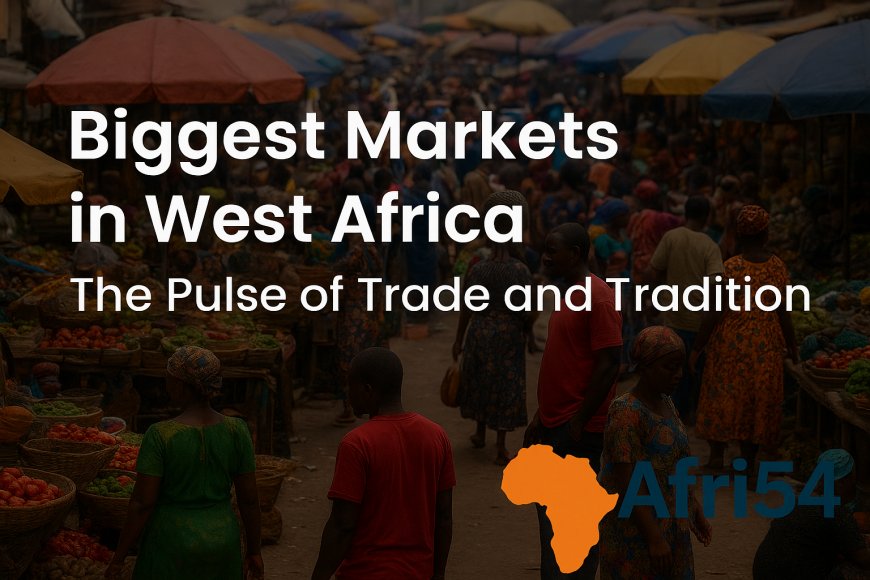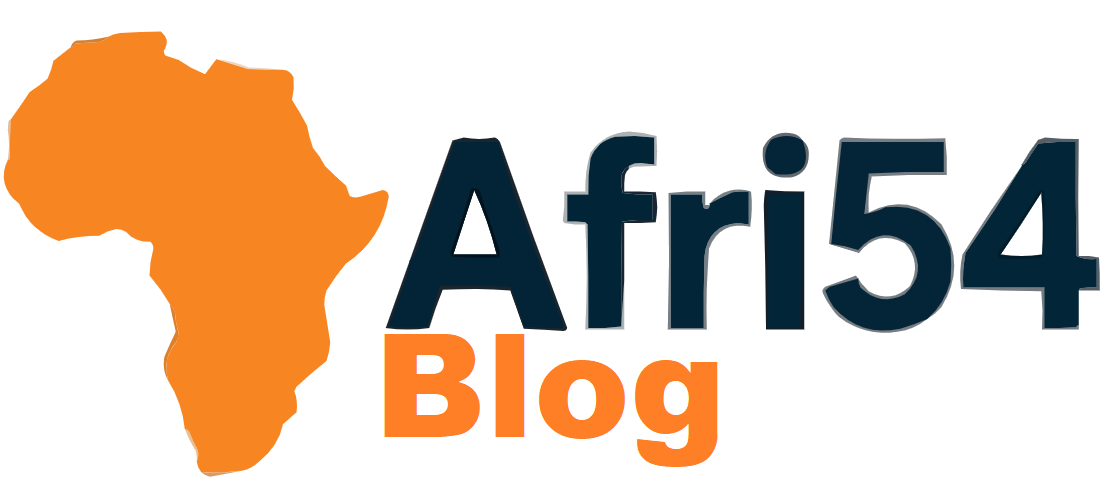Biggest Markets in West Africa: The Pulse of Trade and Tradition
Discover the 10 biggest markets in West Africa — from Onitsha Main Market to Kejetia and Makola. Explore their history, goods, and role in shaping Africa’s economy and culture.

Reading Time: ~9 minutes
West Africa is home to some of the largest and busiest markets on the continent, serving as centers of commerce, culture, and social life. From Nigeria’s sprawling Onitsha Market to Ghana’s colorful Kejetia, these markets are the lifeblood of local economies and gateways for international trade. Here’s a list of the 10 biggest and most influential markets in West Africa.
1. Onitsha Main Market (Anambra State, Nigeria)
Recognized as the largest market in West Africa, Onitsha Main Market is a colossal trading hub covering several square kilometers. It hosts hundreds of thousands of traders dealing in textiles, electronics, household goods, automobile parts, and imports from around the world. It is both a wholesale and retail powerhouse, attracting merchants from across Africa.
2. Kejetia Market (Kumasi, Ghana)
Kejetia Market, with more than 11,000 stalls, is considered the largest open-air market in West Africa. Located in the Ashanti capital, it offers everything from fabrics, jewelry, and electronics to spare parts and local delicacies. For many, it feels like a city within a city.
3. Alaba International Market (Lagos, Nigeria)
Known as Nigeria’s electronics capital, Alaba International Market is the go-to place for TVs, computers, phones, sound systems, and household appliances. It is one of the largest electronics markets in Africa, driving tech-related trade across the continent.
4. Makola Market (Accra, Ghana)
Situated in the heart of Ghana’s capital, Makola Market is vibrant and women-led. Renowned for colorful fabrics, wax prints, beads, cosmetics, and household goods, it is a place where bargaining thrives and Ghana’s entrepreneurial spirit shines.
5. Kantamanto Market (Accra, Ghana)
This market is famous for its second-hand clothing trade, popularly called “obroni wawu.” It is one of the largest resale clothing markets in Africa, with traders importing bales from Europe and America. It’s a massive hub of recycling, fashion, and sustainability.
6. Balogun Market (Lagos, Nigeria)
Balogun Market sprawls across Lagos Island, renowned for fabrics, shoes, bags, and fashion accessories. It’s particularly famous for lace, Ankara, and other textiles. Shoppers from Nigeria and beyond throng its bustling alleys daily.
7. Sandaga Market (Dakar, Senegal)
Located in downtown Dakar, Sandaga is one of West Africa’s most dynamic markets. Here you’ll find fabrics, art, electronics, food, and traditional crafts. It also holds cultural significance, as it’s a melting pot for Senegalese urban life.
8. Tamale Central Market (Tamale, Ghana)
The largest market in northern Ghana, Tamale Central is known for shea butter, leather goods, cereals, livestock, and traditional smocks. It connects Ghana’s northern trade with historic trans-Saharan routes.
9. Kantin Kwari Textile Market (Kano, Nigeria)
Kano’s Kantin Kwari is considered West Africa’s largest textile market. It supplies fabrics and garments to traders from across Nigeria, Niger, Chad, and beyond. With thousands of stalls, it’s a key player in Africa’s booming fashion economy.
10. Agbogbloshie Market (Accra, Ghana)
Primarily a foodstuff distribution market, Agbogbloshie supplies onions, tomatoes, yams, maize, and peppers to Accra and neighboring regions. Though also known for its controversial e-waste scrap yard, it remains a lifeline for Ghana’s food trade.
Why West Africa’s Markets Matter
These markets are not just commercial centers; they are social, cultural, and economic pillars. They connect farmers, artisans, and traders with buyers from every walk of life, playing a key role in Africa’s resilience and entrepreneurial spirit.
Final Thoughts
From Onitsha’s sprawling commercial city to Agbogbloshie’s food hub, West Africa’s markets tell stories of heritage, innovation, and community. They remain essential in shaping not just economies but also cultural identities.
Have you listed your business on Afri54?
Afri54 exists to solve a fundamental challenge faced by millions of African businesses: lack of visibility. Whether you’re an automobile part seller in Lagos, a local attire manufacturer in Kigali, a coffee exporter in Addis Ababa, or a mobile phone supplier in Accra, you deserve to be seen. Join Now






















